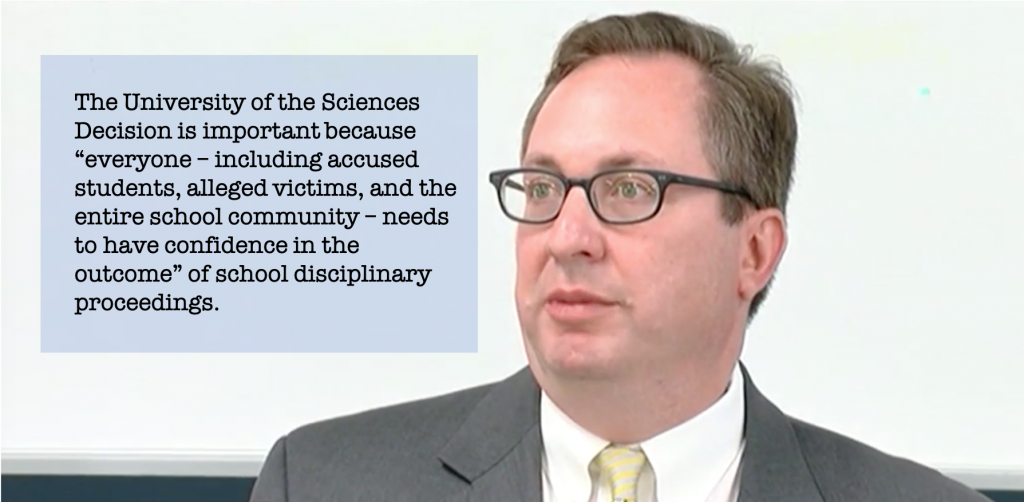
The U.S. Court of Appeals for the Third Circuit issued a “pathbreaking opinion” in a case involving claims by a student who claimed the school failed to provide a fair and unbiased Title IX sexual assault investigation. Joshua Engel, Managing Partner of Engel & Martin, LLC, had argued the case on behalf of the accused student in the Third Circuit Court of Appeals.
A panel from the Third Circuit Court of Appeals unanimously held that private universities that promise a fair process in sexual-misconduct cases must provide students with a live hearing and the opportunity to question adverse witnesses. The case is Doe v. University of the Sciences. In this case, two female students at the Philadelphia school accused a male student of sexual misconduct. The school used a “single investigator” to both conduct an investigation and render a decision. The school did not, like many schools, use a hearing panel or offer the student an opportunity to question his accusers.
The court said that a ‘fair’ and ‘equitable’ process should include a real, live, hearing and the opportunity for the accused student or his or her representative to cross-examine all adverse witnesses. In reaching this conclusion, the court acknowledged the impact of disciplinary findings – and, in particular, disciplinary findings in sexual misconduct cases – on students. The court concluded that the student should be permitted to continue his case and pursue his claims that the school was improperly motivated by sex when it investigated and enforced its sexual misconduct policy against him. Experts in the field described the decision as “profound” and predicted that other circuits could follow.
Engel stated that the decision represents another important step forward in assuring that schools follow fair disciplinary processes.
“Education is important to a student’s career and everyone – including accused students, alleged victims, and the entire school community – needs to have confidence in the outcome. Schools have an obligation to make sure that they get these decisions right by using procedures that enhance the accuracy and reliability of the decisions.”

